Original viewing ideal editorial department viewing ideal.

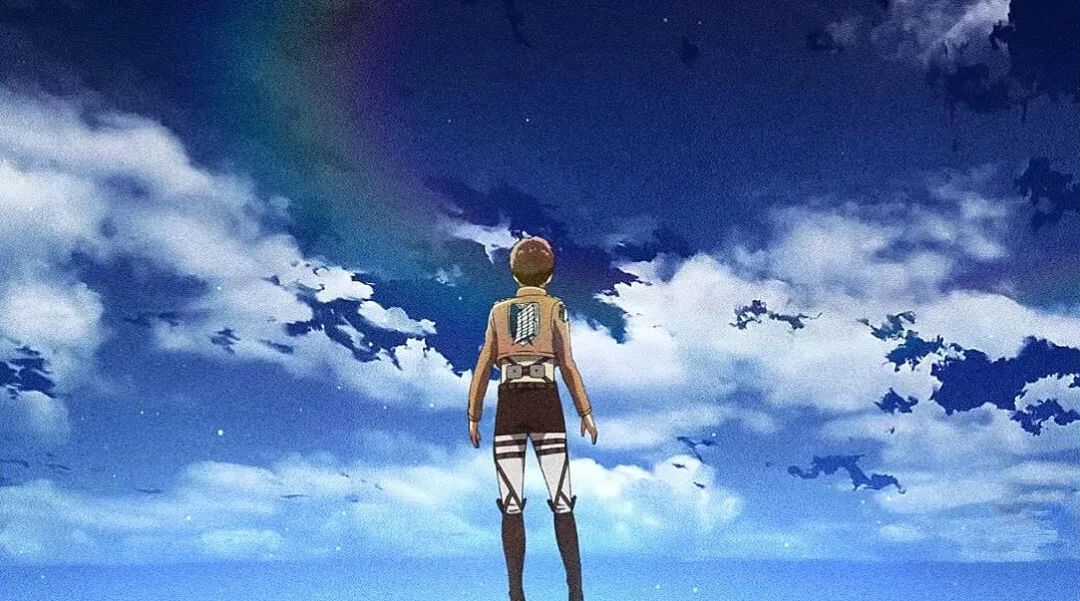
"
The ending of the cartoon is like a great satire on the real world. Just like what we know about reality and human history, it is a world full of hostility, hatred and fear.
"
Although the animation is still being updated, on April 9, the original comic book "The Attacking Giant", with a leading plot, ushered in the final words. The ending conceived by the author Lushan Chuang has caused phenomenal controversy.
Some people think that this is a continuation of Lushan Chuang’s consistent "darkness, cruelty and reversal", while others think that this turning point is too blunt. However, the controversy is not only focused on whether the plot trend is "unfinished"; There are more people out of anger, thinking that this is Lushan Chuang’s "deliberately disgusting readers" and "a major malignant event in the history of animation".
Today, starting from the controversial ending of Giant, we not only want to discuss whether it is "unfinished", but also want to see whether this ending is the author’s own way or the necessity under a certain thinking and creative mode. Why are there always so many "unfinished" works? We want to see a good ending. Why is it so difficult?
* This article contains a large number of spoilers of The Attack Giant and Game of Thrones.
01.
Why does Giant make so many people angry?
In this controversy, many people refer to The Aggressive Giant (hereinafter referred to as "Giant") as "Game of Thrones in the animation industry". Interestingly, there are many similarities between the two works in the development form, and even the collapse trend of the ending is strikingly similar.
In the original fire and ice of Game of Thrones (hereinafter referred to as Journey of Thrones), in addition to western fantasy settings, the author george martin introduced a very special POV(Point of View) writing method, and each chapter was described in detail from the perspective of a character.
Therefore, from the POV perspective, no one is the absolute protagonist, and even the "protagonists" can die one after another. This is a story based on the cruel and dark history of the Middle Ages. With the constant "reversal" of the perspective and plot of the characters, the boundaries between the traditional villains and villains become blurred, leaving only the struggle for power.
In The Giant, there is also a similar perspective shift: as the story unfolds, what was originally thought to be just the setting of the world inside and outside the wall, the contradiction between man and giant soon turned to the real setting: the tear between people. The contradiction between the two camps (Malay Empire and Erdia Empire) started from ancient times and continued to the era when the protagonist Allen lived. The giant is the continuation of this curse.
Compared with the feud between medieval aristocrats in Quan You, The Giant is more special in that for us living in the world after the establishment of a modern nation-state, the feud between ethnic groups and the helplessness of individuals at the mercy of fate reflected in it are real enough, political enough, cruel enough and deconstructive enough.
For example, after the protagonist turned into a giant and won the battle, he was not loved by the masses like a hero, but was regarded as a monster, tried and swept through the struggle of political forces. The collapsed house in the giant melee is not just a background board like the superhero movie, and people die innocently every time. Not to mention the decision-making figures in the political center need to abandon human nature from time to time, and one move can affect the joys and sorrows of countless people.
As ordinary people, the protagonists inherited the fate of giants, shouldered the mission, and had to be involved in the torrent of struggle with fate. The constantly emerging truth and doubt broke the bottom line of this group of idealists again and again. People die for the freedom they yearn for, but the cruel fate can’t change the slightest.
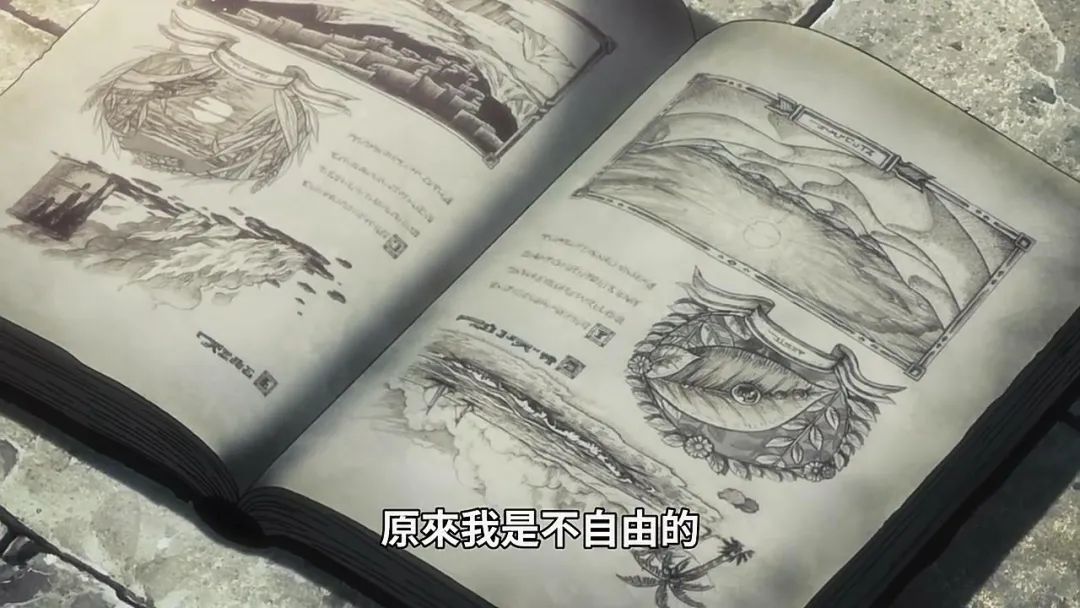
The attacking giant
If "Quan You" is a magnificent epic legend, the plot has the color of classical romanticism. Then the Giant is more like a metaphor: ordinary people who are caught in the disputes between modern nation-states and have the übermensch mission in Nietzsche’s conception, even if they become heroes, have no choice but to face the tragedy.
By the time Quan You was filmed in the sixth season, the progress of the series had caught up with the unfinished novel, and as we all know, Martin was a king of procrastination, so the writers could only create the story according to the general direction authorized by Martin. They didn’t have Martin’s profound skill in building characters, and they kept changing the direction of the story because of the possible leakage of the story.
In 2019, "Quan You" entered the final season, but in the last four episodes, it completely collapsed. In the whole process, all the characters forcibly "degraded their intelligence (reduced their intelligence) and ran away", and finally ended up with a unconvincing "constitutional monarchy". Many people believe that if Martin writes the ending of the novel, he can lay out the connection and character changes more reasonably, instead of the hasty ending now.
If the bad ending of Quan You is due to the writer’s lack of pen power, the bad ending of Giant looks even worse. Judging from the previous plot trend and characterization, it is generally believed that Lushan Chuang is capable of making a good ending that may not make everyone exclaim.
However, from the beginning of the 138 words in the cartoon, just like the last few episodes of Quan You, almost all the characters of the leading group took a 180-degree turn, ending the story in the same way of losing their wits and going wild. (I won’t describe the ending in detail here)
The ending of the giant is not anticlimactic like the ordinary "unfinished tail", and it is not only the character ooc (the contradiction between the former and the latter). It can be said that in the first 99% of the plot, Lushan Chuang portrayed a cruel story from the perspective of the growth of the three protagonists (which is also a common perspective in the Japanese), but it was still mixed with the struggle of human nature, the righteous act of kindness, the tragic sacrifice and the reflection on the war.
In the last two sentences, all these disappeared, and the author chose the simplest forced violence to lead to the ending. Whether the so-called balance between the two sides or the resentment of the giants dissipates because the lover can kill the "bad guys" he loves, the solution logic behind it is "killing to stop killing" and "killing for freedom".
People can’t help but wonder, if killing is effective, where did the feud for two thousand years come from? What is the value of all the struggles of this generation in the giant story line? Is it shocking or another bad custom to force deconstruction for deconstruction and reverse for reversal?
In this discussion, some people take Death and Naruto, which are also criticized as "rotten tails", as a comparison. If other "rotten tails" are still traceable, Giant comics maintained a very good level before 137 words, until the last two words, suddenly the plot came to such a big dive.
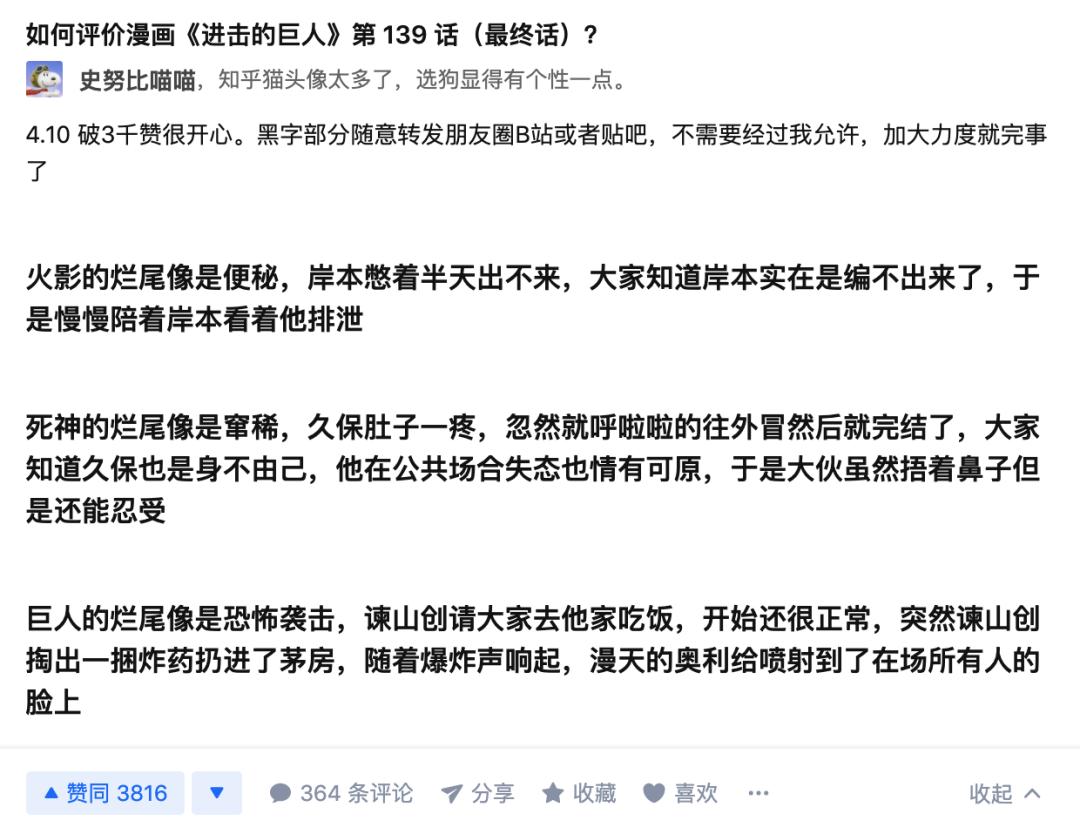
In the comments at the end, a word used by many people is "I’m desperate to see". In the first 99% of the plot, we are presented with an in-depth story of a young man who breaks the tradition, which makes many readers bring emotion and infinite empathy for the characters (and therefore spend a lot of money). In the last 1% of the time, all the past bedding was overturned, and "killing" people was caught off guard.
After the final words of "Giant" caused an uproar, many people turned over the words of Lushan Chuang in an interview in the past. In the conversation, he said that he could accept the ending of "Quan You" and would not consider the expectations of readers. Like a "crime forecast", it predicted the ending he wanted to create.
Iris published an article called "The Giant", which wrote: "The real bad thing about the finale is that the author undoubtedly knows what the readers want to see and how to satisfy them, but he chose to destroy every bundle accurately. Just as the designer of a building falls into the dark side and decides to install a bomb in his designed building, he will certainly be able to complete the task of bombing the building in the most streamlined and effective way. "
02.
We want to see a happy ending. Why is it so difficult?
In past interviews, Lushan Chuang has repeatedly mentioned the pain of being restricted and insisted on "maintaining creative freedom". On the other hand, we will also feel confused. Why do the long serials we chase often seem to be "unfinished"? Is it so difficult to see a good ending?
This has to mention the Japanese cartoon creation system. The Attacking Giant is serialized in Another Book Junior MAGAZINE, which is a special book of Weekly Junior Magazine, one of Japan’s three major juvenile comic magazines. Japanese teenagers tend to pay attention to "friendship", "hard work" and "victory", and serialized cartoons are not limited by these big frameworks.
Different magazines have different requirements. For example, Weekly Youth JUMP strictly implements the voting mechanism for readers, and those with low popularity may be halved and end in a hurry. The works with high popularity will be asked by the editor to continue serializing. This system does inspire the author, but it also brings other problems.
Generally, when creating cartoons, the general story frame and world outlook are set. If it is extended indefinitely for the sake of popularity, it will violate the basic law of works creation, and there will be more story patterns of the same theme, which will become more and more "routine", and the initial setting will become boring after getting tired of it.
In this kind of partial industrial work creation, it becomes very difficult to end in the place where it should end; Only a few authors take the initiative to ask the ending works to have a good ending, such as You You Bai Shu and Dunk Master. And every time a long work is discussed as "unfinished", "The Alchemist of Steel" will be pulled out for "praise".
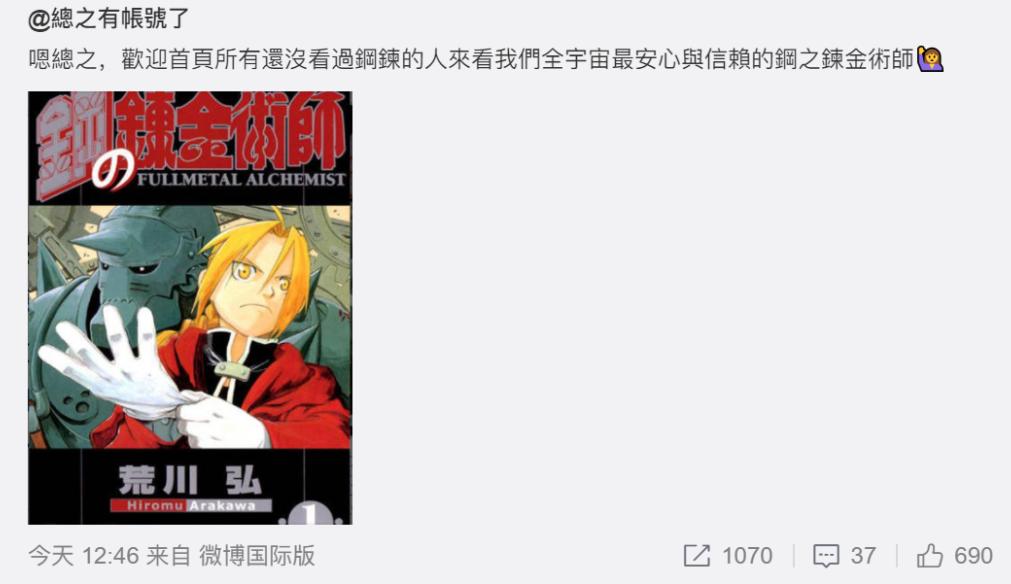
A Zhihu netizen summed up the four major performances of "Steel Refining": First, the quality of the whole process remained online; Second, the beginning and the end: the pits are filled in, and the characters have also explained the ending; Third, the logic is strong, and the whole article focuses on the core value: equivalent exchange; Fourth, consistency: the characterization is always logical and reasonable, and there is no big contradiction between the setting before and after.
In fact, this kind of unfinished problem often occurs not only in the spread of the sun, but also in the long serial/broadcast film and television works all over the world A number of American dramas, such as House of Cards, Lost, Prison Break, etc., are all high and low, and there are many kinds of bad endings. No wonder some people joke, if you discuss the bad drama you have seen, everyone can talk endlessly.
In addition to the problems brought about by the production mechanism, there are also some difficulties in the nature of creation. The creation of serial mode itself has a structural dilemma, especially when it is necessary to carry out the story in a brand-new background that is different from ordinary people’s daily life experience.
Of course, this may also be the limitation of the long theme itself. Especially for these "super-expanded" and "high-concept" works, they are more like a large-scale human nature experiment and exploration, which puts characters in extreme environments for thinking and exploration.
In "high-concept" fantasy works, short stories usually impact readers instantly through very specific and extreme scenes, and the ending does not need to be finished as a whole after the big expansion, so the ending of these stories is easier and more interesting, and it can also lead to thinking by leaving blank space, such as Love, Death, Robot, Black Mirror and Mermaid’s Forest.
And long stories usually have to design the lives of the characters and their emotions, in other words, let the characters enter the world life for a long time, and once they imagine life, they can’t get away from the shackles of the existing social structure of human beings, or more and more people see the shadow of real life in the stories. If the long story is more social modeling and "over-expanded", it will be more difficult to give a reasonable ending.
Just like "westworld", which entered a weak stage in the later period, the first three episodes went into chaos in a hurry. How can we expand rich plots around the protagonists under the huge setting beyond the framework of daily life, so that the protagonists can conform to emotional logic and have credible behavioral motives when dealing with various contradictions, and finally solve the pit buried by the setting? This is a great challenge for all creators.
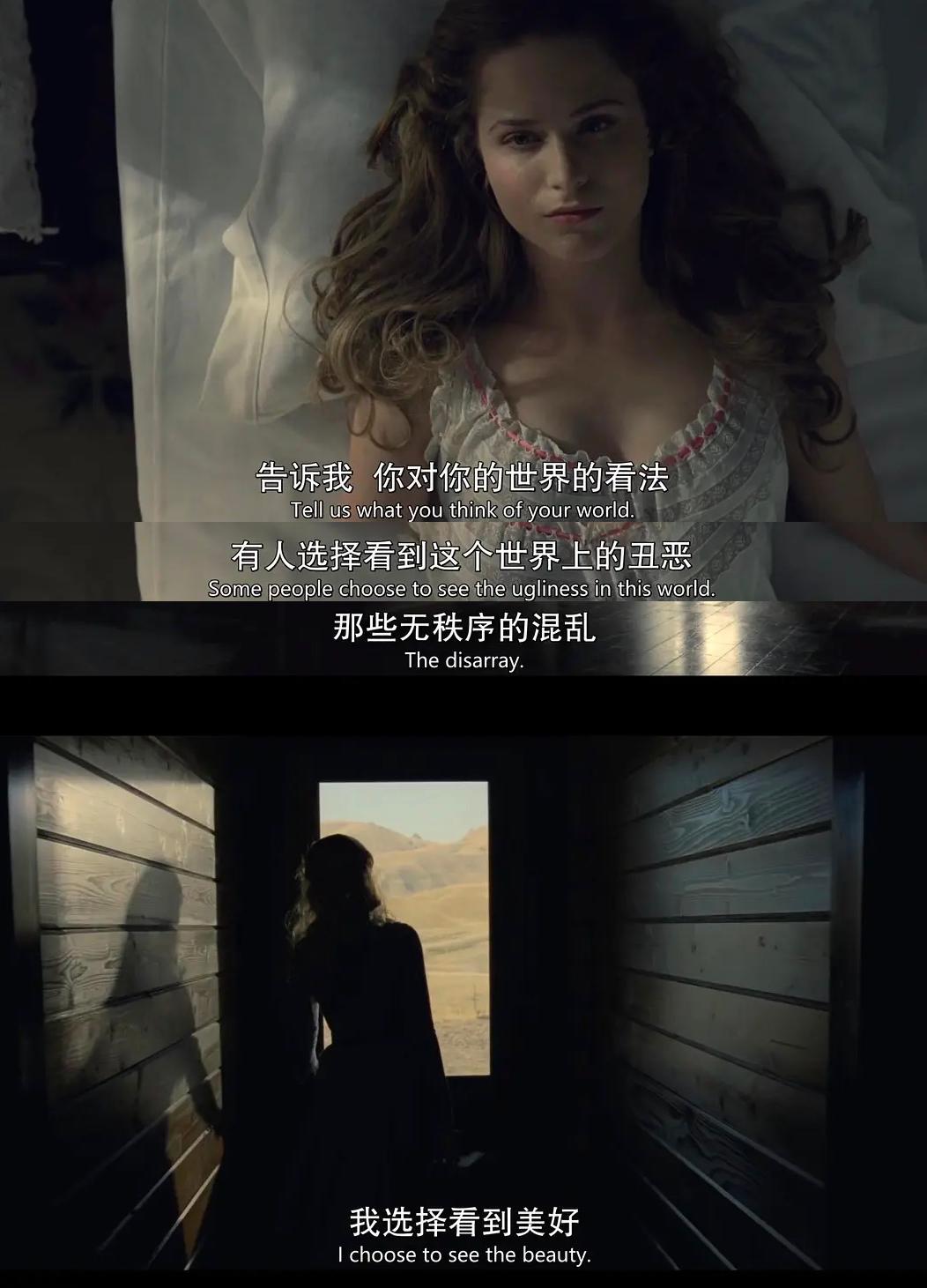
Photo: "westworld", which is what many people once expected for "Giant"
As the story progresses, the creator will always face such a difficult problem: how to set the story and difficult problem under the framework for himself, give a convincing solution, or a reasonable ending. In order to solve these problems, creators must have enough thinking and accumulation on the "bottom logic" of knowledge structures such as history, sociology and psychology, otherwise they will easily fall into a mediocre pattern.
On the other hand, for dramas with narrative tricks, such as westworld, Alien Catastrophe and Attack Giant, works based on surreal settings with suspense, reversal and human nature experiments as their selling points must not only make the basic emotions of the characters acceptable to the audience, but also make the behavioral motives of the characters conform to various logics in the constantly updated storyline, so it is very easy to lose sight of one thing and lose sight of the other.
These "brain-burning" interests are a powerful attraction element for the current audience, and drama creation often falls into such a cycle: readers guess, seek novelty excessively, and leak secrets, which leads to not pursuing convention excessively and being more "over-expanded". In the future, because there are too many story clues, it is actually more difficult to write a reasonable ending.
Today, if a long work is only a simple happy ending, it is obvious that it can’t satisfy today’s audience. And a slightly ambitious creator will try to make some "reversals" that break the routine.
From this point of view, The Giant really continues "darkness, cruelty and reversal", but apart from Lushan Chuang’s possible malicious and blunt reaction, there are still many contents that can be further discussed about the handling method and historical trend behind the giant’s ending.
03.
History may be such a stalemate.
As for the ending of Giant, some people think that it is a manifestation of Lushan Chuang’s hidden militarism or destructive desire; Some people think that this is a deconstructive expression that he simply doesn’t want to solve the fate metaphor of the giant curse he set himself; Others complain that Lushan Chuang lacks real enthusiasm and creative desire to solve historical grievances, and can only respond to camp conflicts with "balance of power/balance of power diplomacy" that has long been proved invalid by history.
We can’t completely restore Lushan Chuang’s motivation for making this decision, or easily define him and The Giant in one or two words. In the huge controversy about the outcome, different people see different angles, and also have various discussions about history, humanity and social form. From this point of view, "Giant" is worthy of its own pit.
Taking Quan You as an example, it is also a fantasy work with some fantasy settings (dragons and ghosts). Finally, it chose to let the monarch who owns dragons die and the ghosts completely perish, and became the ending of human constitutional monarchy which is most in line with the historical trend.
It is really difficult to imagine how a monarch with the power of the dragon can unite various human forces full of cracks and continue to fight against alien ghosts, which is beyond the current social conception of mankind. In the ending of Quan You, the laziest way was adopted, and the influence of all fantasy settings on the ending was deleted by forced death, which also skipped all the possibilities of the entanglement between theocracy and secular regime, and made the story of medieval aristocratic struggle fast forward to the period of "constitutional monarchy", forcibly shrinking all clues and ending abruptly.
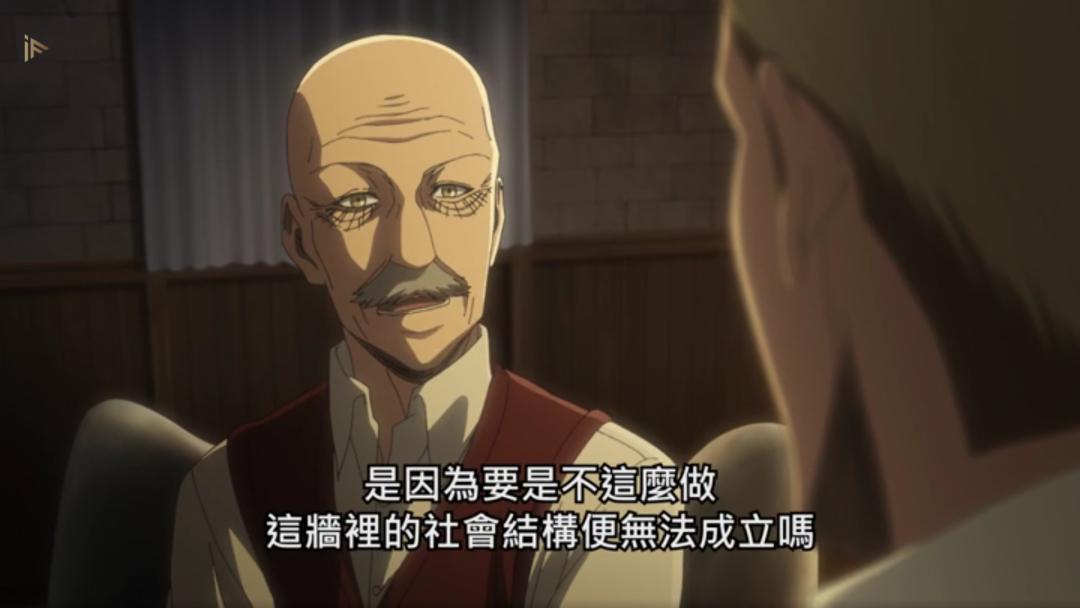
Looking at The Giant with the same mode, it also uses the simplest and rudest way to return the story to the historical track without "magic".
Originally, in the thousand-year feud war between two countries, we saw that there was more than a simple confrontation between countries. There are geographical considerations, intertwined economic and resource replacement, not to mention the flirting between power figures; In these complicated situations, the people’s confrontation with the righteous cause and the simple enemy and ourselves is often just a tool instigated by the rulers.
However, after constructing the moral dilemma and social dilemma, the author adopts such a solution: let the protagonist Allen play the tyrant and kill 80% of mankind, and then let others kill Allen, and the resentment will be solved.
At first glance, it looks like a moral paradox experiment like a tram track, but it actually embodies a kind of "balance of power" thinking. Apart from the rigid transformation of the characters in the plot, the practical benefits of this kind of experiment have been proved to be invalid many times in the past history.
"Balance of power" is a concept in international relations. Since the Victorian era, Britain has long implemented the balance of power among countries in the European continent. After the Vienna Peace Treaty in the 19th century, the European continent maintained a balance for about 50 years. Finally, with the strong rise of the German Empire and the weakness of the Austro-Hungarian Empire, it completely failed, and inevitably there were two world wars in the 20th century.
If we use the experience of human history to shine into the story of Giant, the ending of temporary peace is undoubtedly an ironic "hypocritical" peace.
Of course, from another angle, it can also be interpreted as follows: the author Lushan Chuang has no intention of giving a possible solution, he is full of disappointment with human history, and the peace given in the story is bound to be short-lived.
The Giant was once regarded as a serious anti-war theme in its early days, and its final ending "collapse" also symbolizes the difficulties encountered by human existing political thoughts in resolving disputes.
In the 276th issue of Eight Points, Liang Wendao looked at the ending of The Giant in this way: "When the comics progressed all the way, I couldn’t help touching these’ classic’ theme discussions-centralization and freedom, fairness and class, obedience and loyalty, independence, national interests and personal interests, and how should all this end?
Does the maintenance, establishment and balance of the world depend on the guarantee of mutual destruction in the cold war era? In other words, the foundation of peace is a mutual fear?
From this point of view, I think this ending is just right. This ending is very similar to the real world. The whole world has entered a temporary state of compromise. This compromise is not a compromise formed through negotiation, but an ending that is glued through war and delays the final outbreak of contradictions.
In the end, nothing has been solved, and there may be a lot of problems left. We all know that this state will not last long, but isn’t this the road we have taken in human history? "
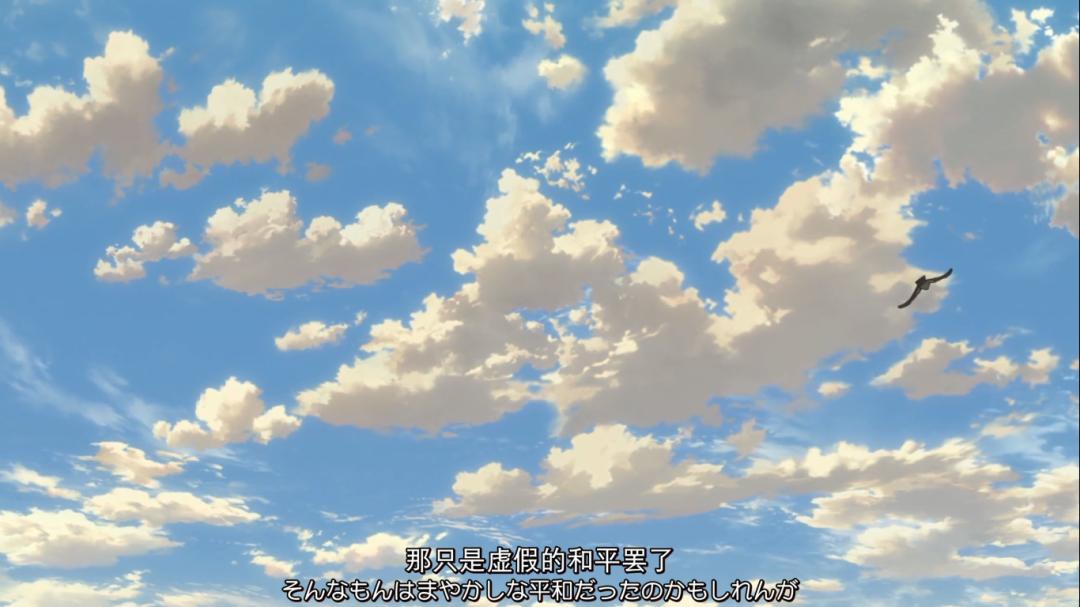
Head picture: "The Attacking Giant"
Written by Su Xiaoqi and Su Youruo
Original title: "The Attacking Giant" and "Unfinished Tail", is it revenge on society? 》
Read the original text